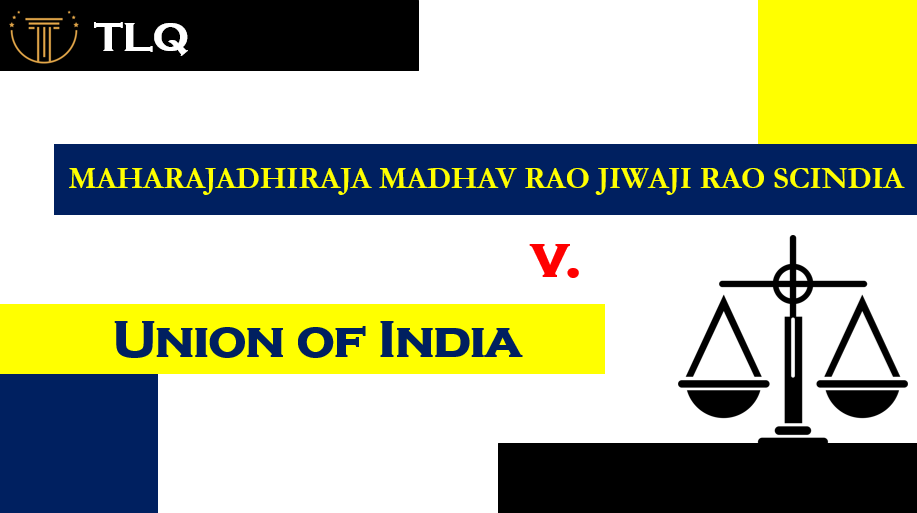Published On: 23rd November, 2023
PARTIES INVOLVED:
APPELLANT– Mohammad Ali
RESPONDENT– State of U.P.
BENCH– Dipak Misra and N.V. Ramana
INTRODUCTION
The above-mentioned case relates to the appeal of a criminal charge under sections 363, 366, and 367 under the Indian Penal Code first heard by Additional Sessions Judge/F.T.C., Hapur, District Ghaziabad which was later appealed to Allahabad High Court and then finally the Hon’ble Supreme Court. The appeal concerned whether the prosecution which was solely based on the victim and other witnesses’ testimonies along with the circumstantial evidence which barely connected the dots of the story so told was enough to be reliable for the conviction. Thanks to the excellent counsel of the appellants the case was viewed with more scrutiny than at the earlier stages leading to a complete overturn of the decision in the appellant’s favor in the end.
FACTS OF THE CASE
- The appellant, along with 7 other members was booked under sections 363, 366, and 367 under the Indian Penal Code under the complaint which was made on 3/12/1996.
- Each was sentenced to undergo three years rigorous imprisonment under Section 363 of IPC along with a fine of Rs.2,000/- with a default clause, five years rigorous imprisonment along with a fine of Rs.3,000/- under Section 366 of IPC, and ten years rigorous imprisonment along with a fine of Rs.5,000/- under Section 376 of IPC.
- The accused pleaded it was a false implication due to political rivalry created during the recent Gram Sabha Pradhan elections leading to unrest among family and friends of the rival parties.
- The seven witnesses including the victim herself along the doctor who had examined the victim all gave their testimonies which were considered in the favour of the prosecution by the Trial Court.
- Later the Trial Court Judge decided that the prosecution had been able to give evidence only against four of the accused persons including the appellant namely Ali Waris, Mehmood, and Fazal.
- Therefore, an appeal was made against the court decree that was given by the Trial Court to the Allahabad High Court.
- The Allahabad High Court appreciated the evidence and believed that the Trial Court judge’s decision of prosecution was flawless and did not feel the need to make any change in the judgment already given by the lower court.
- Aggrieved by the decision the appellant decided to appeal to the Hon’ble Supreme Court where the appellant’s counsel proceeded to bring to light various flaws that were present in the conviction of the appellant and the others.
- It was then contended that the prosecutrix’s statements and the circumstantial evidence were inadequate with too many loopholes to be the basis of the prosecution.
- For instance, one of the witnesses the mother of the victim waited 11 days to file a complaint, that is the incident happened on 22/11/1996 while the complaint was lodged for the missing daughter on 3/12/1996, when any parent would have gone to the police the very next day if their child didn’t return home by the end of the day.
- Not only that as per the statement provided by the mother, one of the alleged Ali Waris, told her they left the daughter i.e. the victim at the mother’s house but later she wasn’t anywhere to be found. Somehow the daughter was then recovered by the brother and his friends from Arif’s house which whole scene wasn’t checked into at all. The prosecution made no effort whatsoever to understand how and when the victim was procured from Arif’s house.
- Also, the prosecution on both the Trial Court and High Court level had been solely based on the victim’s doubtful statement and wildly scattered circumstantial evidence which can be considered barely reliable.
- Even the medical examination suggested there was no harm done to the victim in any way that connected with the story provided by her leading to the question of the flawed reliance of the court solely on the prosecutrix’s statement.
- The Appellant’s counsel heavily, though rightfully, criticized the way the lower and High Court solely based their conviction on the statements of the victim and witnesses when they were so delusive.
- It was also the duty of the Appellate court, as pointed out by the appellant’s counsel, to re-appreciate the evidence so adduced by the lower court on which the prosecution was based which made it a negligent move on the High Court’s side.
- So finally due to no confidence in the victim’s testimony and unreliable circumstantial evidence it could have been that the appellant was erroneously convicted.
ISSUES
- Whether the charges against the appellant and the others were erroneous due to the unrest involving the recent election?
- Were witnesses and victims’ statements which were filled with loopholes and various unanswered questions, reliable enough to be the basis for prosecution?
- The circumstantial evidence so gathered was barely holding together or adding any clarification to the story so should it have been even considered in the first place or at least re-appreciated?
DECISION
The Hon’ble Supreme Court, after hearing both the parties carefully, allowed the appeals. Therefore, the judgment of conviction and order of sentence were set aside and since the appellants were out on bail, their bail bonds were also discharged.
Reference(s):
https://indiankanoon.org/doc/51474008/
https://www.shadesofknife.in/md-ali-guddu-vs-state-of-u-p-on-10-mar-2015/


